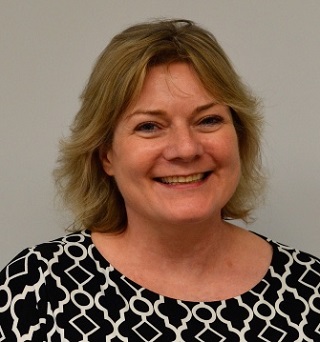
Spotlight on Lendra Friesen, PhD
Assistant Professor, University of Connecticut
“It’s interesting, it’s exciting. It’s years of work.”
Born and raised in Canada, Lendra Friesen’s career in hearing and cochlear implant research has taken her across the continent – spending time in Utah, L.A., Seattle, and Toronto. Now she heads up the Cochlear Implant Brain and Behavior Lab at the University of Connecticut – which she founded in 2014. Along the way, Dr. Friesen has developed expertise in hearing science, neuroscience, and audiology.
Dr. Friesen’s current research combines electrophysiology (the study of the electrical properties of biological cells and tissues) and behavioral methods to understand where problems occur in the auditory system.
Hearing changes as we age
Dr. Friesen explained, “There definitely are changes in hearing as we age that have to do with timing. The speaking rate, for instance. We know if a speaker slows down, the listener can understand them better.”
In a recent study in Dr. Friesen’s lab. participants were asked whether a sentence was said with anger, sadness, happiness, anxiousness, or no emotion. Dr. Friesen noted, “It was surprising what a difference there was with aging. [Younger,] normal-hearing individuals scored about 85-95%. For elderly participants, the score was much lower – about 65%. For an elderly person to pick up on emotion, or humor or sarcasm, the voice frequencies and intensities must be exaggerated.” She added, “Picking up on those cues also comes into play with non-native English speakers. Those are subtle cues but very important.”
Pinpointing the problem
One of the challenges with hearing loss is determining where the problem exists. Is it in the mechanics of the ear? Or somewhere in the neural pathways of the brain?
In 2023, Dr. Friesen and her colleague Robert Morse, PhD, received AHRF’s prestigious Birtman Grant, which offers funding up to $75,000 and is awarded for exceptional scientific investigation.
They are using the funds to develop a novel way to calculate the amount of information traversing the brain in response to a sound stimulus. Working with the same participants, they first will conduct behavior-related tests addressing speech comprehension and emotion recognition. Then they will measure participants’ auditory electrophysiological responses at two different levels in the brain – at the brainstem midbrain, and at the auditory cortex level. Dr. Friesen believes this approach will yield “more robust data, and a much-needed measure of fidelity” resulting in a richer understanding of an individual’s auditory pathway.
What will data relationships tell us?
Dr. Friesen is eager to see if there are relationships between tests.
“Can one predict the other? If a person has poor behavioral results, does that predict the same result in the neurologic data? Is that reflected at both the midbrain and the cortical levels? Maybe the results are good at one level but not at the other. This could help us design different treatment approaches. For example, if there’s a problem at the auditory cortex, treatment might involve playing sentences with a missing word where the patients use their cognitive skills to fill it in. If the problem is at a deeper level, the sound stimulus is important. Maybe we need to find ways to make that sound clearer.
When asked what comes next, Dr. Friesen noted, “We’re studying young vs. older. What happens if we look at people who have hearing loss resulting from meningitis? Or a progressive versus sudden hearing loss? This approach could have a significant impact on how we treat patients.”
